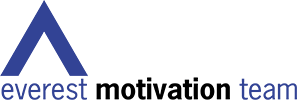Have you heard of the the global economic downturn? And the doom and gloom with nightly downwardly mobile figures in just about everything (except maybe in salaries)? The recession? I’ve decided not to participate. However, I can’t say the same for millions elsewhere. A common reaction at an organisational level is to “cut costs”.
In my world of imparting mindset skills, and creating improvements in team outcomes, it’s interesting to see how ‘ costs’ are defined. Most people in the corporate world still need to work in teams, and most lack ideal skills to do so, and yet ‘teambuilding’ components of corporate expenditure is often the first to be cutback. Are you still working in a less-than ideal team environment? Are team outputs less than ideal? That being said, why are initiatives designed to improve the very things that help outputs cut back? Here’s my take on why people do so
1) Confusion between investment and overhead
You can often reduce overheads by saving on energy usage, head count, new hiring, buying cheaper paperclips etc. Your longer-term goals are better served if you continued to invest in technical and supportive skills in your people. Team development is often erroneously viewed as an overhead as its outcomes have never been measured.
Overhead: the nice venue, barbeque dinner.
Investment: quality programme matched to clear objectives, measurable improvements, and quality people partnering you.
It astounds me how people prefer to chip away at the ‘ investment’, and splurge on ‘overhead’.
2) You can’t measure teambuilding outcomes
A client of mine (a Singapore government Ministry that shall remain unnamed) described how they purchased ‘teambuilding’ programmes.
” We get the budget, and then we spend it. No, we never measure any outcomes”.
Hallo? What is wrong with this? For the past 5 years, we have been offering, and deploying an instrument, which helps measure eight key team attributes and skills, and perceived improvement or lack thereof. Only in the last year has there been a surge of interest in it as organisations realise that team development is part of capability improvement, and what does not get measured doesn’t get done. You can measure results – but only if you work hard in the first place getting clarity in what you want and how you will measure it
3) Fails to Distinguish Team Recreation, and Team Building
Team Recreation is paintball, bowling, karaoke, abseiling, hang gliding etc.
Team building is using some of the above, or other group experiences to build linkages in people behaviour in situations of challenge, stress and problem-solving, and transferring it back to the office, This can be a fun structured, facilitative process. Some actual work processes can also be used onsite (not offsite) to create a fun, team-enhancing workplace. The problem is that most providers out there enter the market selling ‘recreation’ and ‘activities’, rather than an outcome, and most buyers don’t know different, or buy something they want, not what they need. For example, can you tell me how a highly competitive, individualistic activity like go-karting teach teamwork to a group that needs to work collectively to improve results? Or how paintball won’t stir up latent hostilities, and an ‘us’ versus ‘ them’ attitude when what you need might be the opposite?
4) Respecting only Tasks not Teams
People who have, for example, pooh-poohed experiential-based team development have vast experience in task accomplishment and delegation, but have few team supportive skills. Teambuilding often puts a team under stress in a safe, controlled environment to reveal strengths and weaknesses that are often reflective of their present attitudes. The follow-up helps cement that renewed learning in the workplace. You don’t get better teams by simply going to work each day and working harder.
5) We Can’t Afford Teambuilding!
Absolutely correct – if you have been spending thousands in the good years on stuff that was largely team recreation (see QPoint 3). My question would be: Can you afford NOT to spend on creating better teams?
Here’s my challenge to you if you’ve been reading this up to this point:
Write to me in detail about your best team investment so far in the past 6 months, and I’ll come and give the best 2 entries a lunchtime presentation* on high performing teams and how to get close to this golden standard – without cost.
